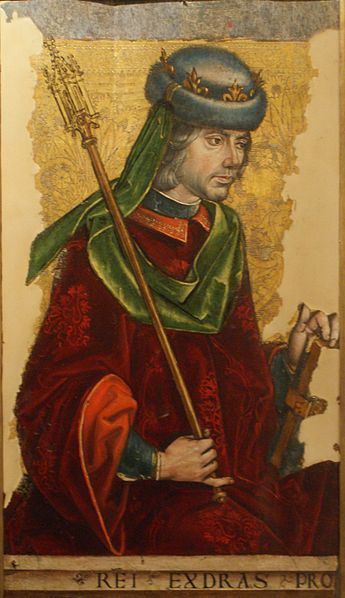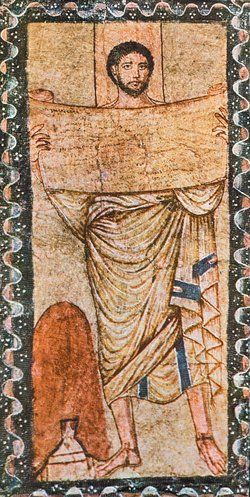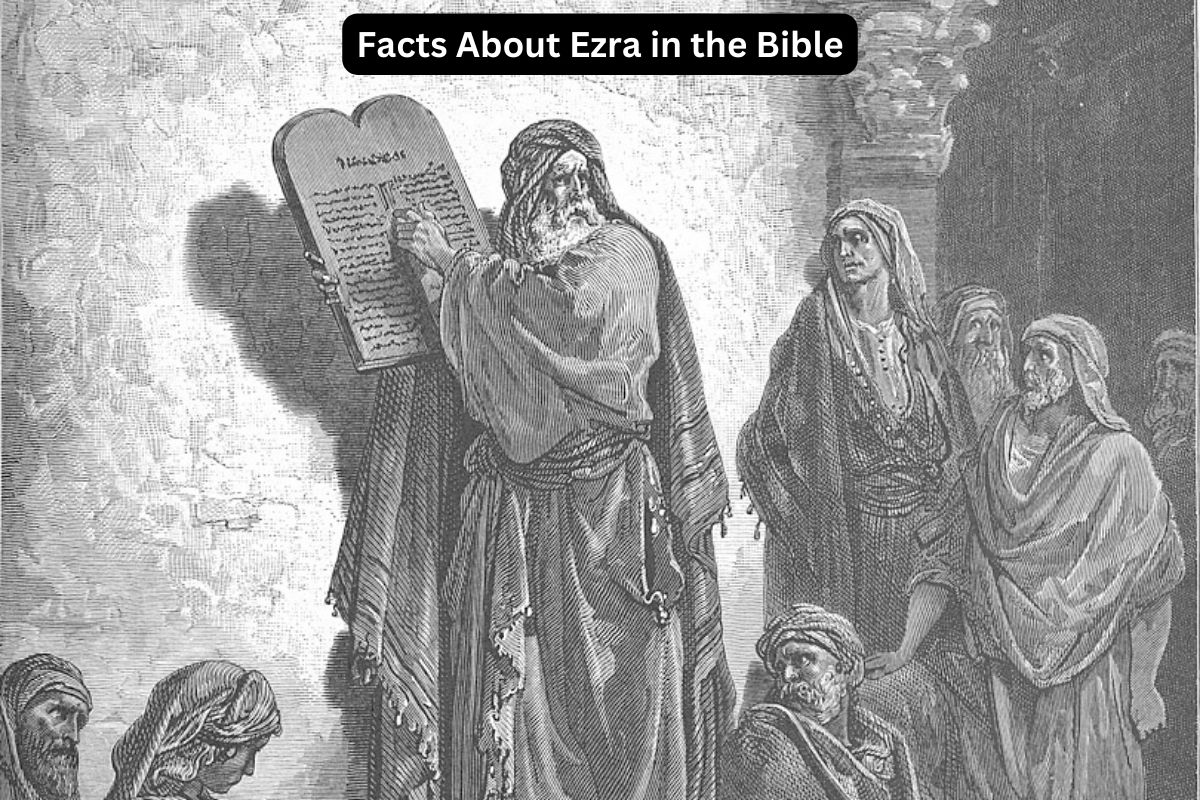Ezra, a prominent figure in the Old Testament of the Bible, is known for his instrumental role in the post-exilic period of Jewish history.
As a descendant of Aaron, he was a priest and a scribe who played a crucial role in leading a group of Jewish exiles back to Jerusalem from Babylon, following the decree of King Cyrus.
Ezra’s leadership extended beyond politics; he was a devoted servant of God who implemented religious reforms, emphasized the importance of the Mosaic Law, and presided over the famous public reading of the Torah.
Additionally, he is traditionally attributed as the author of the books of Ezra and Nehemiah, which provide valuable insights into this pivotal era of Jewish history.
Ezra in the Bible Facts
1. Name means “help” or “helper”
Ezra’s name carries significant meaning. In Hebrew, “Ezra” means “help” or “helper,” reflecting his role as a leader who aided the Jewish people in their return to Jerusalem and their efforts to rebuild their community.

2. Descendant of Aaron, a priestly lineage
Ezra belonged to the priestly tribe of Levi, and he was a direct descendant of Aaron, who was the brother of Moses.
Also Read: Facts About Jacob in the Bible
This lineage made him a member of the priestly class, which held important religious responsibilities in ancient Israel. As a priest, Ezra had a deep understanding of religious practices and the Law of Moses.
3. Led Jews back to Jerusalem after Babylonian exile
One of Ezra’s most significant roles in biblical history was leading a group of Jewish exiles from Babylon back to Jerusalem.
Also Read: Ruth in the Bible Facts
This return took place following a decree issued by King Cyrus of Persia, who allowed the Jews to return to their homeland and rebuild the Temple that had been destroyed during the Babylonian conquest.
Ezra’s leadership in this return marked the beginning of a period of Jewish restoration in Jerusalem and the reestablishment of their religious and cultural practices in their ancestral land.
4. Benefited from King Cyrus’ support
Ezra’s mission to lead the Jewish exiles back to Jerusalem was greatly facilitated by the support of King Cyrus of Persia.
In 538 BCE, Cyrus issued a decree known as the Edict of Cyrus or the Cyrus Cylinder, which allowed the Jewish people to return to their homeland and rebuild the Temple in Jerusalem.
This decree not only provided them with resources but also ensured their safety during the journey back. Ezra and the returning exiles benefited immensely from this royal endorsement, which marked the beginning of their return to their ancestral land.
5. Known for his devotion to God
Ezra was not just a political leader but also a spiritual one. He was renowned for his deep devotion to God and his commitment to upholding the Mosaic Law.
His dedication to religious practices and his strict adherence to God’s commandments set an example for the returning exiles, emphasizing the importance of their faith and obedience to God.

6. Reformed Jewish worship practices
Ezra played a significant role in reforming and revitalizing Jewish worship practices in Jerusalem. Upon his arrival, he noticed that many Jewish exiles had intermarried with foreign women and had adopted customs and practices contrary to the Mosaic Law.
In response, Ezra implemented reforms to ensure that the people followed the Law of Moses faithfully. He initiated a spiritual and religious revival, emphasizing the importance of studying and obeying the Torah (the Jewish holy scriptures).
This commitment to religious reform helped to strengthen the spiritual identity of the Jewish community and restore their faith in God.
7. Famous for the public reading of the Law
One of the most iconic events associated with Ezra is the public reading of the Law of Moses. He gathered a large assembly of Jewish people at the Water Gate in Jerusalem, a public area near the Temple, to read and explain the Torah to them.
This event was a pivotal moment in Jewish history, as it reaffirmed the importance of God’s commandments and the Mosaic Law in the lives of the Jewish people. Ezra’s reading of the Law served as a spiritual renewal and recommitment to following God’s statutes.
8. Addressed the issue of intermarriage
Ezra confronted a significant issue upon his return to Jerusalem – the intermarriage between Jewish men and foreign women. He viewed such intermarriages as a breach of the Mosaic Law and a threat to the purity of the Jewish faith.
As a response, he demanded that Jewish men divorce their foreign wives and separate themselves from these unions. This action was taken to ensure the preservation of Jewish religious and cultural identity.
9. Kept meticulous genealogical records
Ezra was known for his attention to detail and his dedication to maintaining genealogical records. These records were crucial for determining one’s eligibility for various roles and privileges within the Jewish community, especially in the context of priestly and Levitical duties.
Ezra’s meticulous record-keeping helped maintain the integrity of the priestly line and ensured that individuals met the required criteria for their roles.
10. Traditionally attributed as the author of the books of Ezra and Nehemiah
Ezra is traditionally attributed as the author of the biblical books of Ezra and Nehemiah. These books provide historical accounts of the Jewish people’s return from exile, the rebuilding of the Temple, and the restoration of Jerusalem’s walls.
They also document Ezra’s leadership and his role in the religious and political reforms of his time. These books are essential for understanding the post-exilic history of the Jewish people and their return to their homeland.
